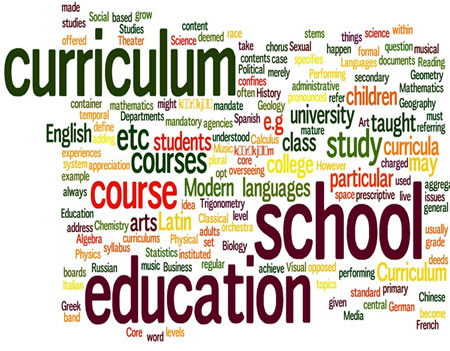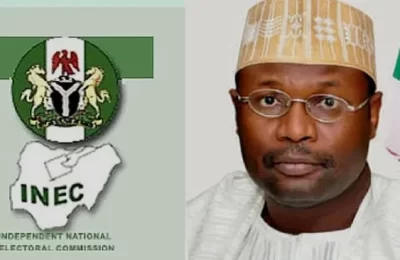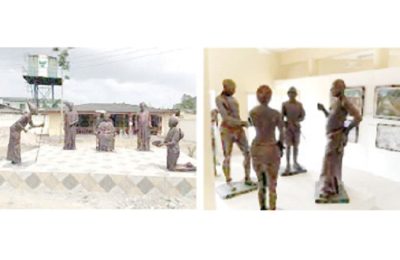The Development Agenda for Western Nigeria (DAWN) commission, Learning for All in Nigeria (PLANE), and other relevant stakeholders in education sector have strategised on raising the standard of low-cost private schools in the Southwest region in conformity with the United Nations Education, Scientific Cultural Organization (UNESCO) Standard.
The stakeholders at the launch of the Coalition of the Interest groups in Ibadan resolved to unite in raising the bar of education for the various low-paying fees schools across the region.
The PLANE’s Technical Lead on Governance of Non-State Systems, Dr James Fadokun, stated that the responsibilities of the coalition are to advocate for government support of non-state schools, mobilise private and community support (both technical and financial) for non-state schools, provide recommendations to governments on ways to improve non-state schools and serve as an intermediary between governments and owners of non-state schools.

He added that the initiative seeks to engage with government agencies and policymakers to recognise and support the critical role that non-state schools play in addressing educational gaps, especially for out-of-school children.
According to him, “By advocating for government support, we aim to foster policies that provide non-state schools with access to essential resources, training, and funding opportunities. This includes integrating these schools into broader educational frameworks, creating a pathway for sustainable development, improved standards, and overall quality in education provision.
“Recognising that educational transformation requires multi-stakeholder engagement, this objective focuses on rallying support from the private sector, community leaders, NGOs, and philanthropic organisations. By mobilising both technical and financial resources, we aim to equip non-state schools with the tools needed for effective teaching, infrastructure development, and curriculum enhancement,” he said.
The initiative, according to Fadokun, could involve facilitating partnerships for technology integration, capacity building for teachers, or securing scholarships and sponsorships that can alleviate the financial burden on families and school operators.

He also explained that leveraging research, community insights, and best practices, aims to develop evidence-based recommendations to guide government actions toward enhancing non-state school operations.
“These recommendations would address key areas such as regulatory support, quality control, curriculum development, and capacity-building initiatives. By presenting actionable solutions, the initiative aspires to support the establishment of an enabling environment where non-state schools can thrive, thereby expanding access to quality education for all children,” Fadokun said.
“The initiative will play a critical role in facilitating open communication and cooperation between government authorities and the owners and administrators of non-state schools.
“By bridging this gap, we aim to foster mutual understanding, trust, and collaboration, ensuring that the unique needs and challenges of non-state schools are addressed in government policies. This also involves creating platforms for dialogue where stakeholders can share their perspectives, explore innovative solutions, and work collectively towards common goals in education,” he stated.
On the essence of the coalition, the Head of Programmes at DAWN Commission, Mr Abiodun Oladipo, said the intervention for non-state schools is designed to tackle critical challenges by building a strong coalition of diverse interest groups.
“This coalition brings together educators, community leaders, NGOs, and private sector partners who will work collaboratively to advocate for government support and policy changes towards improved standard in non-state schools. The goal is to ensure that every child in non-state schools, especially those attending low-fee institutions, has access to quality education,” he said.
Oladipo said it is important to put the coalition in place to address education gaps and change misconceptions.
“In many regions, non-state schools fill critical gaps where government schools may be overcrowded, underfunded, or inaccessible. Low-fee non-state schools are often the only viable option for parents seeking affordable, quality education for their children. Supporting these schools ensures that education remains within reach for students in marginalised or low-income communities.
“Also, there is a common misconception that non-state schools, are solely profit-driven and exist primarily as a means of generating revenue. This initiative aims to shift that perception by highlighting the essential role these schools play in providing affordable education to underserved communities,” he added.
Oladipo noted that the key performance indicators (KPIs) for the coalition should be increase in school enrollment rates, improvement in student retention rates, and percentage reduction in schools with insufficient infrastructure.
Earlier in his address, the Director-General of DAWN commission, Dr Seye Oyeleye, had encouraged the stakeholders the improve the standard of education at the low-fee-paying schools.
He said everyone must work together to empower every child in the South West region with the education they deserve.
Oyeleye said non-state schools, particularly those catering to low-income families, play an irreplaceable role in bridging the educational divide, providing accessible learning opportunities to children in underserved communities.
“These schools face numerous challenges, from limited resources to infrastructural gaps. Today’s advocacy meeting convenes to address these challenges and to lay down a roadmap for impactful, sustainable interventions.
“We are honoured to have a diverse gathering of minds and voices here today, from educators to policymakers, advocates, and community leaders. Each of you brings unique perspectives and invaluable expertise to our shared goals. Over the course of today’s agenda, we will discuss effective advocacy strategies, explore frameworks for targeted interventions, and collaboratively develop an action plan that will guide us in achieving meaningful change.
“I encourage each stakeholder to actively participate, share insights, and foster partnerships that will extend beyond today. Together, we have the power to build a coalition that not only advocates for quality education but also transforms the lives of children in the South West region,” Oyeleye said.
ALSO READ THESE TOP STORIES FROM NIGERIAN TRIBUNE







